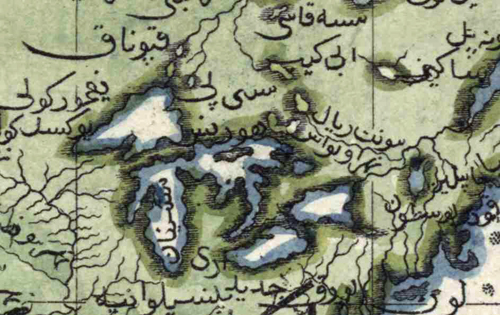
Since she joined the University of Guelph’s history department several years ago, Prof. Renee Worringer has been “trying to put Middle Eastern studies on the map here, so students can find a cohort of other interested students and faculty. In fact, I think that’s an important part of university: finding people interested in similar topics, so that you can bounce ideas off each other.”
There were plenty of “ideas bouncing” over the weekend of March 29 to 31 as Worringer hosted a Great Lakes Ottomanist Workshop (GLOW) at U of G, bringing in scholars from both Canada and the U.S. to discuss topics related to the history of the Ottoman Empire.
“The workshop is important to me because nobody else at the U of G is doing Ottoman history,” she says. “It provides an opportunity to take the pulse of Ottoman studies, to see what direction we are going in and what direction we want to go. It’s a huge field – the former Ottoman Empire is now more than 30 countries – and we have a lot to offer.”
One of Worringer’s former students, Justin Dell, who is now working on a PhD at the University of Toronto, gave a presentation about American missionaries working in Syria (then part of the Ottoman Empire) in the 1820s. When their attempts to convert people to Christianity were not well-received, the missionaries then began offering education. This soon turned into “civilizing” the Syrians and trying to bring them western cultural ideas, even though their superiors back in the U.S. were opposed to this approach – their motto was “Christianization before civilization.”
Worringer has also been active in organizing events on campus with the Middle Eastern Scholars Society (MESS) throughout the year. This group, started by Worringer and some colleagues in 2010, brings together students from Guelph and other schools in the area with speakers to discuss a variety of topics related to the Middle East.
“It’s better than it was a generation ago, but what high school kids get in school about the Middle East and the Islamic world is still so very limited,” says Worringer. “Japan and China are way ahead of the Islamic world in terms of what is taught in school, and students don’t learn about how Islamic history relates to western history.” She adds that it is a bit ironic, since today’s high schools include many Muslim students, but the history of the region where many of them were born is rarely addressed. Her MESS group hopes to fill in those gaps for university students.
While many of the speakers are from local universities, past sessions have included the Turkish Consul-General in Toronto and Tariq Ramadan, a prominent expert on Islam, from Oxford University.
Worringer currently has a monograph under review looking at the Ottoman views of Japan in the late 19th and early 20th centuries. She explains, “Japan was seen as a country that was able to preserve its culture while adopting many ideas from the West. They took the ideas of democracy, using more technology, educating their children in secular rather than religious schools and even educating women, but still stayed ‘Japanese.’ The Turks and Arabs saw this as a model for how they might become modern without having to become like the western nations.”
With that monograph completed, Worringer is turning to a new area of interest for her research: wolves and how they are seen by different cultures. “The wolf is a very prominent animal in folklore and it means different things in different times and places. It can represent power or it can represent evil, but it seems to be significant to many cultures.” If her grant application is approved, she hopes to travel to Turkey, Iraq and Iran and possibly some other countries while on sabbatical next year to carry out the research.
She won’t be able to return to Syria, where she had earlier spent a year doing research, because of the current civil war. “It’s heartbreaking to see the country devastated and its people killed,” she says.